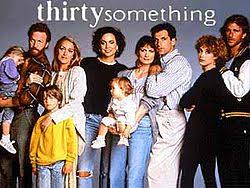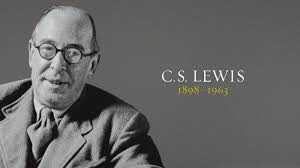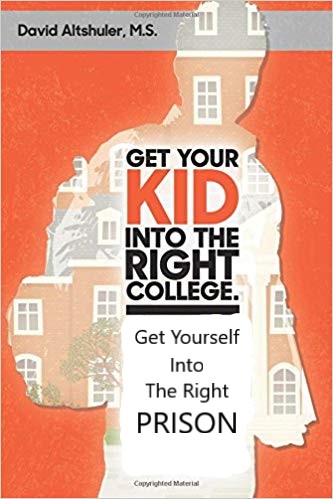I thought I had written enough about the Varsity Blues scandal. I expressed outrage here and sarcasm here. The whole affair sickened me and I was sick of writing about it. Douglas Hodge, the CEO of PIMCO plead guilty. Felicity Huffman is spending two weeks in prison. Agustin Huneeus got five months. In short, the perps are going to jail. They are rolling over on one another like cheap hookers. (For a more complete list of sentences, click here.)

I had hoped that was the end of it. But the admissions disgrace is the sadness that keeps on giving. I would have thought that the lesson for students would be, “Oh, my. I better prepare my applications and essays in an honest way, because cheaters are not only not prospering, but the glitterati in the City of Angels are also remarking that “orange is not my best color.”
Instead, my sense of what is going on in the application community is something like this: “Those LA folks cheated with a Capital “C; they lied like six-year-olds, their faces covered with chocolate swearing they hadn’t eaten the brownies. Their lies were so egregious, so outrageous that they have set the standard for falsehood. So I’m just going to inflate the number of volunteer hours or have dad write my admissions essay. It’s not like I’m inventing a whole person, pretending I’m a star on the water polo team when I barely know how to swim. I’m just going to lie a little. I’m sure that’s okay and I certainly won’t get caught. It’s like somebody blew up the bank to steal tons of money and there are twenty-dollar bills floating everywhere and I’m just bending down to pick one up.”

Thirty-something years, ago a parent of one of my first clients added a sentence to her son’s admissions essay. I was surprised, offended. I was also young and naïve. My college admissions practice was new. Actually writing a sentence seemed blatantly unethical. Teach writing? Yes. Edit for grammar and mechanics? Sure. Actually create sentences for the students? Certainly not. Writing crosses a line. Worse, how can we send a young person off to first-year composition courses without insisting that their admissions essays be their own?

Fast forward. Today a significant proportion of admissions essays have the unseen hand of a parent that is all too easily perceived. Parents no longer add a clandestine subordinate clause; parents unabashedly write all 500 words.
How can admissions personnel and counselors tell the difference between essays written by parents and essays written by students? The same way that you and I can tell the difference between parents and students when we see them across a crowded room. Parents are older. I’m not trying to be funny here. Seventeen-year-olds may have attained their full height. But they still don’t look like the adults they will subsequently morph into. An adolescent can wear a suit and tie, make up, or high heels. But an adolescent is still easily distinguishable from an adult. Similarly, their essays are different.
A parent asked me this week if he should not pad the hours in the activities section. The common application has a space for “hours per week” and “weeks per year.” “Everyone else is cheating,” dad began. “Won’t my son be at a disadvantage if he tells the truth?”

In the same sense that I will be at a disadvantage if I don’t rob a bank while everyone else is perfecting stick-’em-up skills. Or as C. S. Lewis put it, “Integrity is doing the right thing even when no one else is watching.” Or as any admissions officer reading eight applications an hour might express it: “we’re just trying to get a sense of these kids. What difference could it possibly make if an applicant claims to have practiced the tuba for ten hours a week instead of five?”

Virulent gaming of the system begins with applications and goes on through the criminal justice system. Just as there are independent admissions counselors charging $15,000 to tell students what to wear to their interviews–hint: nudity is a bad plan–there are consultants who instruct defendants on what to wear to their sentencing.
What next? Apparently paying a consultant to get you into the prison you want is already a thing. Will there be a U.S. New and World Report guide to the best (most competitive?) prisons? What about a book of careers most likely to be boosted by criminal behavior? Should children be bragging about their parents having been admitted to their first choice prison? Can we agree that in LA, there are no bad prisons, just bad prisoners? How much should parents pay consultants in their never-ending quest to be admitted to a prison that is “highly ranked”? Should I give some thought to the title of my next book?

Having been insensitive to get a laugh, I’m now going to tell the truth: My heart breaks for these soon-to-be incarcerated folks. Not only because they are going to prison, but also because I don’t think these parents know their kids at all. I don’t think they enjoy who their kids are. I don’t think they have any connection with their kids, that they ever just sit with their kids, be with their kids, love their kids for who the kids are rather than for what the kids do.
Who could imagine that where your kid goes to college–USC or North Cornstalk State–makes all the difference? The kids don’t care, or care only as much as the parents have been able to share their anxiety. The kids know that who they are matters more than where they attend. The parents would have to be totally detached from the child and her abilities to believe that matriculating at USC makes the kid a USC kid. Unless of course the parents intended to pay to have every paper written for the kid just like they had scammed the admissions essay, the activities section, and the athletic resume. Putting this 63-year-old balding, paunchy author on the field on a Sunday does not make me into a 6′ 8″, 320 pound, million-dollar athlete. To the contrary, one NFL play puts me in the hospital. A kid who doesn’t have the intellectual chops to be successful in the classroom at USC would be happier elsewhere. Not to put too fine a point on it, but what did the parents think would happen were the kid to show up for water polo practice unable to swim?

Parents who don’t know who their kids are. Parents who don’t appreciate their kids. Parents who are focused on their own vanity rather than the best interests of their kids. Parents who are willing to commit crimes to send their kids to the wrong college. Of all the sadness involved in the Varsity Blues Scandal, that’s the real tragedy–parents who don’t love their children for who they are.



2 thoughts on “Collateral Damage”
You nailed it, David. I thought I was about to see the “camping” word. It would be in the next sentence. You made your point. As I took the time to write this note, I spent some time reflecting on all the time we spent as a family at Highlands Hammock State Park. If I let them use the axe, we got the fire going and everyone had all their fingers still attahced to ther hands, it was a success. I taught them more then just putting their hands in their back pocket while choppong wood. Now if I could figure out how to get rid of the red lines. I hope you are doing well my friend.
Yes. I’m glad you called out the parents who now think they are justified in stretching the truth. Just had a lawyer dad tell me that his grandfather was Hispanic and he wants to present his twin sons as such to give them an edge.